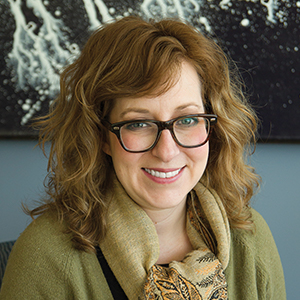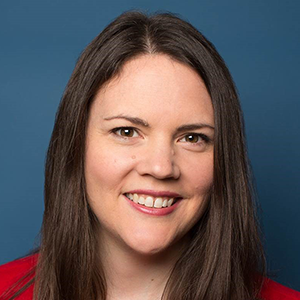Journal of Lipid Research names new junior associate editors
The Journal of Lipid Research, a peer-reviewed journal published by the American Society for Biochemistry and Molecular Biology, has appointed six junior faculty members to its editorial leadership team.
The journal’s junior associate editor program, now in its second year, was created to achieve two chief goals: demystify the peer-review process and train the next generation of journal leaders.
Each junior associate editor will serve a two-year term.
Michael Airola, Stony Brook University
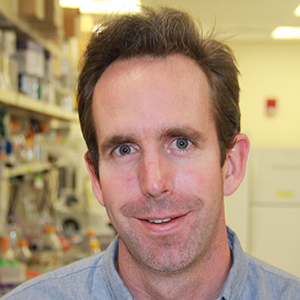
Michael Airola is an assistant professor in the biochemistry and cell biology department at Stony Brook University (also known as the State University of New York at Stony Brook). He runs a lab focused on the structural biology of lipid-modifying enzymes. He earned his Ph.D. at Cornell University in 2010 and completed a postdoctoral research fellowship at the Medical University of South Carolina and Stony Brook Cancer Center. He joined the faculty at Stony Brook in 2017. Airola will partner with JLR Associate Editor George Carman of Rutgers University during his term.
Luke Engelking, University of Texas Southwestern Medical Center at Dallas
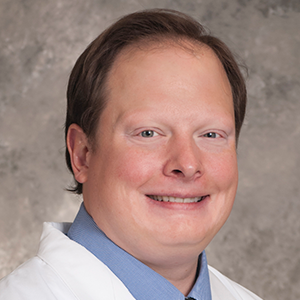
Luke Engelking is an associate professor in the internal medicine and molecular genetics departments at the University of Texas Southwestern Medical Center at Dallas. A physician–researcher, Engelking practices adult gastroenterology with a focus on the care of patients with inherited forms of colorectal cancer, such as Lynch and FAP syndromes. His lab focuses on the roles that lipids play in the growth of intestinal cells. He earned his M.D.–Ph.D. at UT Southwestern in 2007, completed his residency at Massachusetts General Hospital in 2010 and then completed a fellowship in gastroenterology and hepatology at UT Southwestern in 2014. He joined the faculty at UTSW after completing his fellowship. Engelking is also an investigator at the UTSW Center for Human Nutrition. During his term at JLR, Engelking will partner with Associate Editor Jay Horton of UT Southwestern and Editor-in-Chief Nicholas Davidson of Washington University in St. Louis.
Scott M. Gordon, University of Kentucky College of Medicine
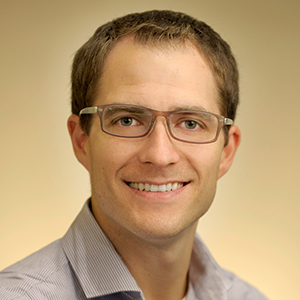
Scott M. Gordon is an assistant professor in the physiology department at the University of Kentucky College of Medicine, where his lab studies intestinal lipid absorption and atherosclerotic cardiovascular disease. Gordon earned his Ph.D. at the University of Cincinnati College of Medicine in 2012 and completed a postdoctoral research fellowship at the National Heart, Lung, and Blood Institute in 2018. He joined the faculty of UK shortly thereafter. He will partner with Associate Editor W. Sean Davidson of the University of Cincinnati during his term at JLR.
Rebecca Anne Haeusler, Columbia University
Rebecca Anne Haeusler is an assistant professor in the pathology and cell biology department at Columbia University. Her lab studies the mechanisms that link insulin resistance and cardiovascular disease. She earned her Ph.D. at the University of Michigan in 2007 and completed a postdoctoral fellowship at Columbia in 2011. She worked as an associate research scientist at Columbia until 2014, at which time she joined the faculty. During her JLR term, Haeusler will partner with Associate Editor Paul Dawson of the Emory University School of Medicine.
Renate Schreiber, University of Graz
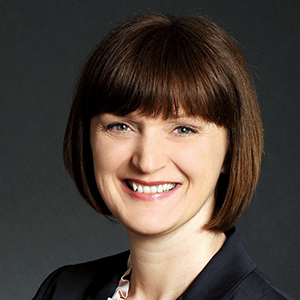
Renate Schreiber is a senior scientist at the University of Graz Faculty of Science in Austria. Schreiber studies lipid-degrading enzymes and their impact on the generation and degradation of lipid metabolites in health and disease. Schreiber earned her master’s degree in 2007 and her Ph.D. in 2011 and then completed a postdoctoral fellowship in 2019 at the University of Graz. She also has held visiting scientist positions at the University of Cambridge, University College London, Umeå University in Sweden and Medical University of Graz. She was named a tenure-track senior scientist at the University of Graz in 2019. Schreiber will partner with JLR Associate Editor Stephen Young of the University of California, Los Angeles.
Judith Simcox, University of Wisconsin–Madison
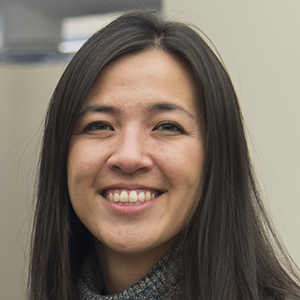
Judith Simcox is an assistant professor in the biochemistry department at the University of Wisconsin–Madison. Her lab studies the sources of lipids that fuel brown fat thermogenesis using lipidomics, genetics, and cellular and molecular biology techniques. Simcox earned her Ph.D. at the University of Utah in 2014 and completed a postdoctoral fellowship at the University of Utah in 2019. She joined the faculty at Madison soon after. During her term at JLR, Simcox will partner with Associate Editor Alan Attie of Madison.
Enjoy reading ASBMB Today?
Become a member to receive the print edition four times a year and the digital edition monthly.
Learn moreGet the latest from ASBMB Today
Enter your email address, and we’ll send you a weekly email with recent articles, interviews and more.
Latest in People
People highlights or most popular articles

Simcox wins SACNAS mentorship award
She was recognized for her sustained excellence in mentorship and was honored at SACNAS’ 2025 National Conference.

From humble beginnings to unlocking lysosomal secrets
Monther Abu–Remaileh will receive the ASBMB’s 2026 Walter A. Shaw Young Investigator Award in Lipid Research at the ASBMB Annual Meeting, March 7-10 in Washington, D.C.

Chemistry meets biology to thwart parasites
Margaret Phillips will receive the Alice and C. C. Wang Award in Molecular Parasitology at the ASBMB Annual Meeting, March 7-10 in Washington, D.C.

ASBMB announces 2026 JBC/Tabor awardees
The seven awardees are first authors of outstanding papers published in 2025 in the Journal of Biological Chemistry.

Decoding how bacteria flip host’s molecular switches
Kim Orth will receive the Earl and Thressa Stadtman Distinguished Scientists Award at the ASBMB Annual Meeting, March 7–10, just outside of Washington, D.C.

Thiam elected to EMBO
He was recognized during the EMBO Members’ Meeting in Heidelberg, Germany, in October.

